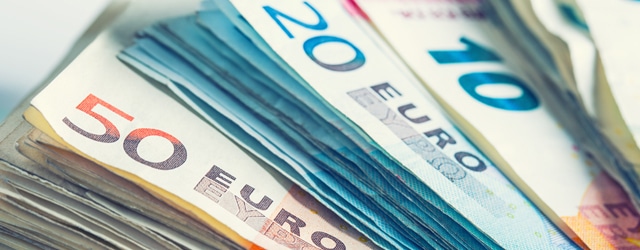
US companies flocked to Europe to issue bonds at low interest rates in May, after centrist Emmanuel Macron’s landslide victory in the French presidential election lowered perceived political risk in the European Union. General Electric led the parade of US issuers, with an €8 billion ($8.7 billion) bond, one of the largest such issues ever.
The French government itself issued a €7 billion 30-year bond and received more than €31 billion in orders, reflecting pent-up investor demand as well as renewed hope for stronger economic conditions in Europe.
GE’s four-part bond issue comprised maturities of five, eight, 12 and 20 years. The €8 billion issue attracted €22 billion in orders. It was the largest “reverse Yankee” bond, where US companies raise money in the euro bond market, since Coca-Cola sold €8.5 billion of bonds in a five-part offering in February 2015.
Apple also announced it was planning a €2.5 billion bond sale, despite the fact that the company is sitting on a cash stockpile of more than $250 billion. It immediately received more than €5 billion in orders for the two-part issue of eight- and 12-year bonds.
Moreover, US pharmaceutical and healthcare companies Allergan and Baxter International were holding investor meetings in Europe last month ahead of planned bond sales. Food maker Kellogg sold €600 million at a yield of 0.81%.
Not to be outdone, Spanish oil and gas company Repsol issued its first green bonds under the Repsol International Finance €10 billion medium-term note program. The €500 million five-year bonds carry a 0.5% coupon and will be listed on the regulated market of the Luxembourg Stock Exchange. Proceeds will be used to finance projects aimed at reducing greenhouse gas emissions in refining and chemical activities in Spain and Portugal.
The sweet spot for borrowers is not expected to last, however. The European Central Bank (ECB) could begin tapering its bond purchases early next year, with an announcement of its intention to do so expected shortly. ECB president Mario Draghi has stated repeatedly, nonetheless, that policy rates are likely to remain low after the end of quantitative easing.
The euro soared to a six-month high against the dollar, with European economic optimism on the rise and political uncertainty on the decline, says Joe Manimbo, senior market analyst at Western Union Business Solutions. “The case for higher US rates over the second half of 2017 has moderated in the wake of softer US data on inflation, consumer spending and housing, in addition to the political uncertainty in Washington,” Manimbo says. “Suddenly, US-European economic divergence is working in the euro’s favor. Moreover, fears of a eurozone collapse have all but vanished in the wake of Macron’s victory,” he says.



